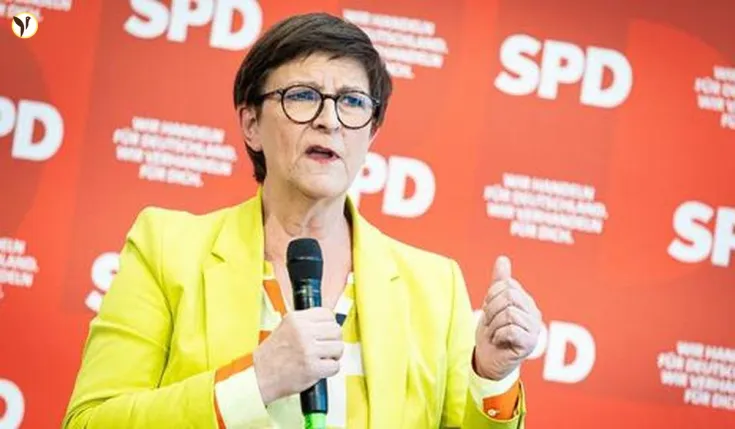Saskia Esken's Future in the SPD: A Shifting Political Landscape
The Social Democratic Party of Germany (SPD) is facing internal turmoil as its Baden-Württemberg state board surprisingly opted not to renominate party leader Saskia Esken for the federal board. This unexpected move, reported by Spiegel and confirmed by the SPD, comes as the party prepares for its leadership elections in June 2025. While Esken herself didn't submit a candidacy this year, the decision has sparked intense debate within the party.
A Controversial Decision and Its Implications
The state board instead nominated Andreas Stoch, Katja Mast, and Isabel Cademartori. State chairman Andreas Stoch clarified that this wasn't a rejection of Esken, stating it wasn't a pre-decision regarding her potential re-election bid. However, Esken's future remains uncertain. She could still be nominated by the federal board or run spontaneously at the party congress. This situation underscores the deep divisions within the SPD, particularly regarding Esken's leadership following the party's recent electoral setbacks.
Internal Criticism and Defense
The controversy surrounding Esken is palpable. SPD state general secretary Sascha Binder criticized her suitability for cabinet positions, questioning her effectiveness. However, Presidium member Katja Pähle defended Esken, arguing she shouldn't bear sole responsibility for the election results, highlighting the collaborative nature of strategic decisions made with co-chair Lars Klingbeil and Chancellor Olaf Scholz.
The Broader Political Context
This internal conflict within the SPD plays out against the backdrop of a new federal government, formed by a coalition between the CDU/CSU and SPD. The CDU, led by Friedrich Merz, is navigating its own challenges, including criticism over its cabinet selections. The political landscape remains fluid, with the AfD gaining ground and the SPD's approval ratings declining, creating further pressure on the party to address internal divisions and regain public trust.
Esken's Future Remains Uncertain
Saskia Esken's position within the SPD remains precarious. While some, like Maria Noichl, advocate for her continued leadership, others call for a change. The June leadership elections will be crucial in determining Esken's future and the direction of the SPD. The outcome will significantly influence the party's ability to effectively navigate the complexities of German politics in the coming years.






